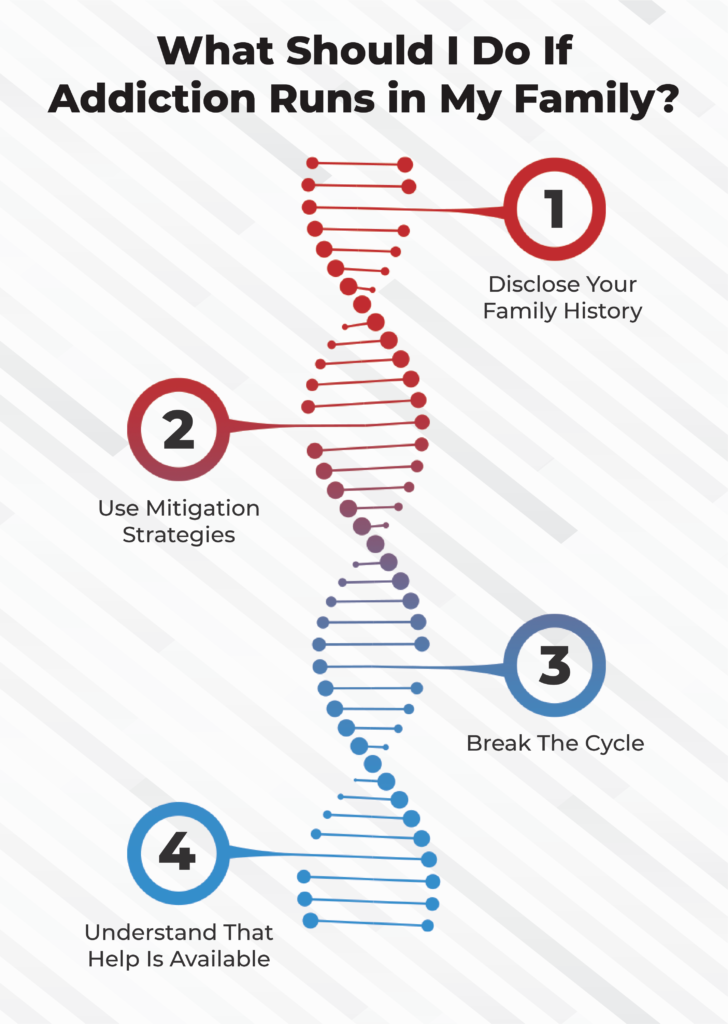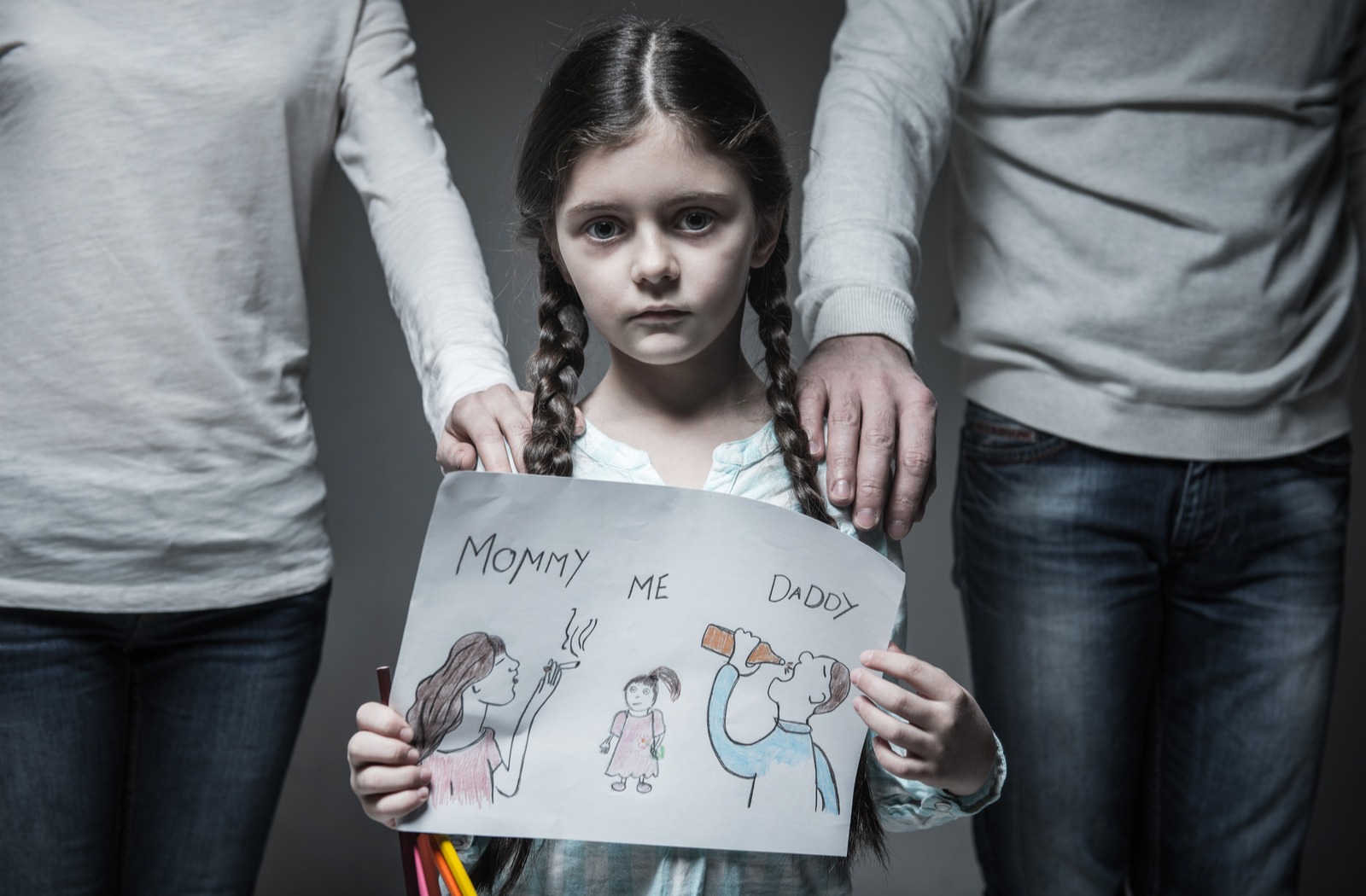Approximately 21% of the Canadian population will experience addiction at some point in their lives—that is almost 6 million people. How does this happen? How does one become addicted to substances like methamphetamines, cocaine, or opioids, or even to a behaviour like gambling?
You may have heard people say that they have an “addictive personality.” But, addiction is more than just a personality trait. It is a disease. It also has strong links to mental illness. And, like many diseases and mental illnesses, sometimes it runs in the family.
If you or a loved one is struggling with addiction, you should know that help is available and recovery is possible. Read on to learn more about what you should do if addiction runs in your family.
Is Addiction Genetic?
Studies show that, as with many diseases, genetics may play a role in your vulnerability to addiction. But, there is another way in which addiction can “run in the family.”
The family and social environment that children grow up in can have an impact on their lives in the future. Spending formative years with parents or siblings with addictions can cause depression, anxiety, and the lack of ability self regulate, leading to eventual self-medication with substances.
Children also mimic the behaviours they see, so growing up in a home where addiction is normalized and commonplace can predispose those children to the learned behaviours of addiction.

Disclose Your Family History
Sometimes, it’s important to talk about your family history. If addiction runs in your family, you may want to tell your partner, your children, and your medical professionals.
Tell Your Doctor
If you find yourself in a situation where you’re likely to need surgery or have hurt yourself and need help managing the pain, disclosing a family history of addiction to your medical professionals is crucial.
Prescription medications may be necessary to help you recover from surgery. But, if close relatives have struggled with addiction to opioids or other drugs, you may be reticent to fill the prescription or consent to taking medication.
A doctor can help you manage these concerns and may be able to provide other options if needed.
Tell Your Children
Many kids get the standard “don’t do drugs” talk from their parents and teachers at school. If addiction runs in your family, having a more in-depth conversation with your children is important.
Perhaps a family member who is struggling with addiction can tell your children their story and let them ask questions. Firsthand information is generally the most impactful way to relay a message.
Telling your children that they are at a higher risk of addiction can help them to make positive choices in their lives. You’d likely tell them if any other disease ran in the family so that they could take preventative measures. Addiction is also a disease, so arming them with this knowledge is crucial.
Tell Your Partner
Ensuring that your spouse, romantic partner, or even a close friend knows that you have a predisposition to addiction can help you avoid negative patterns of behaviour. If you attend a party or gathering together, perhaps this person can agree to drink non-alcoholic beverages with you, or be your voice when others ask why you’re not drinking.
Use Mitigation Strategies
When addiction runs in your family, it’s important to recognize this and take steps to mitigate developing your own addiction issues.
If you have struggled with addiction in the past, it is crucial that you understand any external factors that may entice you to use again. These factors, known as “triggers” can be as simple as loud music that reminds you of a party or talking on the phone with a particular family member who causes you stress.
Avoiding triggering situations can help you stay sober.

Break the Cycle
Joining a support group for children, family, and friends of people with addictions is a great way to learn from others. Talking, discussing, and sharing stories of growing up around addiction can help you to avoid it yourself.
Being around like-minded people will help you realize that you aren’t alone and that many people are also experiencing similar issues. A support group may also provide you with the tools you need to help a family member who is currently struggling.
Understand That Help Is Available
Addiction does run in the family, either through genetic predisposition or learned patterns of behaviour. If you do find yourself personally struggling with addiction, it’s important to remember that you haven’t “failed.” You are still worthy of love, respect, and dignity, and help is readily available. It is never too late to break a generational cycle of addiction. Check out the Calgary Dream Centre to learn more about our recovery programs and how you can get involved with one.



